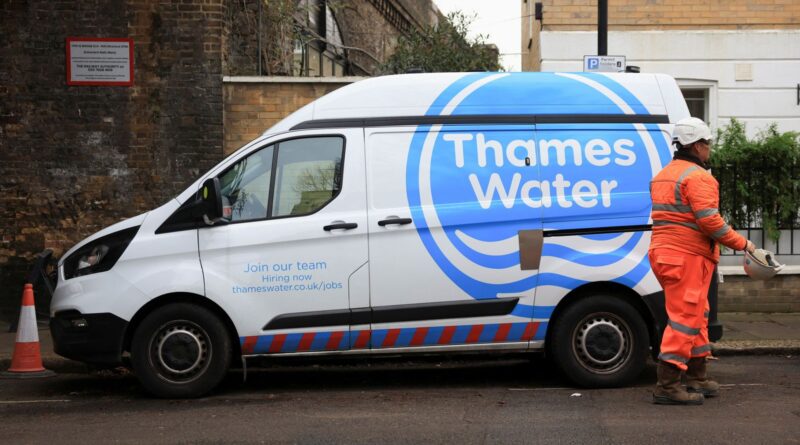Thames Water wins green light for next phase of emergency loan plan | Money News
Thames Water has won court approval to pursue the next phase in securing a £3bn emergency loan, with a hearing intended to secure creditor approval scheduled for four days in the first week of February.
The troubled utility told the High Court that without the loan it will run out of cash by 24 March next year and, as a consequence, is likely to be pushed into a government-backed special administration regime (SAR).
Thames told the court that the loan is being provided by a group of A-class creditors, who between them hold around £11.5bn of the £16bn of debt held at operating company level. A further £3.6bn of debt is held at holding company level.
Money latest: Major pub chain to raise prices
The emergency loan, which is the first part of a wider restructuring plan, is opposed by a smaller group of creditors, who account for £750m of around £1.4bn of B-class debt. They face being wiped out entirely under the company’s plans.
Under the terms of the loan, the maturity date of existing loans will be extended by two years, and other creditors will be pushed back in the queue. As a consequence, the plan requires support from 75% of all classes of creditors and court approval.
The B-class shareholders have prepared an alternative loan scheme at a cheaper rate of 8% that would save the company £158m.
Setting the date for a sanctions hearing in February, Mr Justice Trower said: “It was not the purpose of today’s hearing to say whether this plan should or should not be sanctioned by the court. This is not the time to decide if this proposal is fair or if there is a relevant alternative.”
Thames Water’s lawyer Tom Smith told the court the loan was necessary to give the company the breathing space to respond to a final determination from regulator Ofwat, due on Thursday, as to how much it can charge customers over the next five years.
“It is not in itself a solution to the troubles of the Thames Water group, but it will extend liquidity beyond the period of the Ofwat price review that will come into force in April 2025.… sufficiently that restructuring can be done in light of that determination,” Mr Smith said.
“The company’s position is that if it is unable to implicate this plan, Thames Water Utilities Limited will enter into special administration, and the other companies in the securitisation will enter administration and insolvency.”
Mark Phillips, acting for the B-class creditors, said the loan proposal “is having a chilling effect on the equity raising process”, and the terms, including a clause to release the second £1.5bn next June, is effectively “holding the company to ransom”.
The emergency loan is being offered at an interest rate of 9.75% over two and a half years, plus up to £100m in fees and charges, and with “super-senior” status, meaning it is at the front of the queue for repayment in the event of insolvency.
Earlier this year Ofwat said Thames Water could raise bills by 23%, but the company has since asked to increase them by more than 50% to fund investment in its network and services.
If it secures the loan, Thames Water will then pursue a full recapitalisation, likely to include the injection of fresh equity and a debt-for-equity swap including existing creditors.
Independent analysis commissioned by Thames Water, presented in court documents, show that in the event of administration under Ofwat’s current proposal the A Class creditors would recoup less than 50p in the pound.
Even in the best-case scenario, assuming Ofwat approval for the company’s new business plan, they would stand to lose 15p in the pound.



